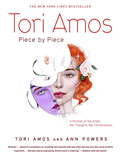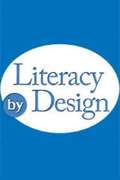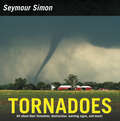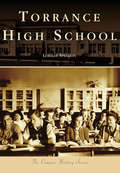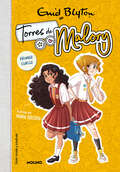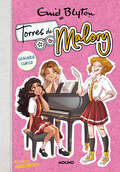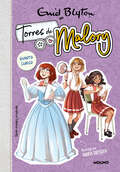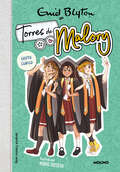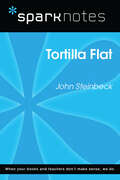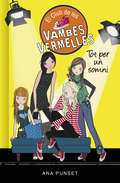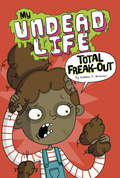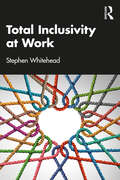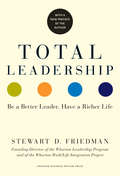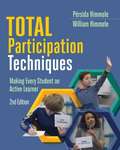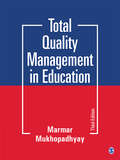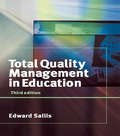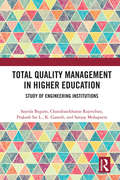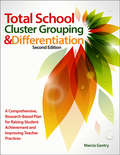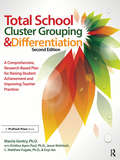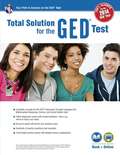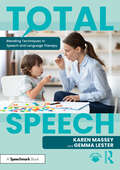- Table View
- List View
Tori Amos: Piece by Piece
by Tori Amos Ann PowersAn intimate, eye-opening look inside the life of one of the most unique and adored performers of contemporary rock music From her critically acclaimed 1992 debut, "Little Earthquakes, to the recent hit, "Scarlet's Walk, Tori Amos has been a formidable force in contemporary music, with one of the most dedicated fan bases in the industry. In "Tori Amos: Piece by Piece, the singer herself takes readers beyond the mere facts, explaining the specifics of her creative process--how her songs go from ideas and melodies to recordings and passionately performed concert pieces. Written with acclaimed music journalist Ann Powers, "Tori Amos: Piece by Piece is a firsthand account of the most intricate and intimate details of Amos's life as both a private individual and a very public performing musician. In passionate and informative prose, Amos explains how her songs come to her and how she records and then performs them for audiences everywhere, all the while connecting with listeners across the world and maintaining her own family life (which includes raising a young daughter). But it is also much more, a verbal collage made by two strong female voices--and the voices of those closest to Amos--that calls upon genealogy, myth, and folklore to express Amos's unique and fascinating personal history. In short, we see the pieces that make up--as Amos herself puts it--"the woman we call Tori. " With photos taken especially for this book by the photographer Loren Haynes, "Tori Amos: Piece by Piece is a rare treat for both Tori listeners and newcomers alike, a look into the heart and mind of an extraordinary musician. Now, backstage at an undisclosed arena where the sweat of athletes is still perfuming my makeshift dressing room, my many conversations with Ann Powers have begun . . . "
Tori Amos: Piece by Piece
by Tori Amos Ann PowersI choose to fight my battles through my music . . . I was born a feminist. And then at age five, when my strict Christian grandmother punished me, I realized, I'm not penetrating here. I'm just pissing people off. So I had to find another way to penetrate. I had to redefine what that word means. That word now is really about an opening, an entering into a separate space. And after the first phase of my life, I realized that it was okay to enter that space without having to be invaded . . . I like the idea of just being able to be inside. Not using penetration as a violent word. The idea of being able to find keys . . . music, using keys to get into a space that we couldn't before . . . Now, backstage at an undisclosed arena where the sweat of athletes is still perfuming my makeshift dressing room, my many conversations with Ann Powers have begun . . . "You come from the journalist side. I come from the artist side. It can become offensive. I'm sure from your side as well as from mine." "Well, it's true everyone expects us to be enemies. And in some ways we are. My job is interpretation. Yours is art, which often benefits from mystery . . ."Ann and I decided to strip our roles back to basics. We are both women born feminists in the 1960s. We are both married. We are both mothers. We are both in the music industry. Traditionally we are enemies. But for this project to be effective, I had to allow Ann to expose Tori Amos. And Tori Amos's inner circle. And me."- from the IntroductionBUY TORI AMOS'S LATEST RECORDING, THE BEEKEEPER, ON EPIC RECORDSAn intimate, eye-opening look inside the life of one of the most unique and adored performers of contemporary rock musicFrom her critically acclaimed 1992 debut, Little Earthquakes, to the recent hit, Scarlet's Walk, Tori Amos has been a formidable force in contemporary music, with one of the most dedicated fan bases in the industry. In Tori Amos: Piece by Piece, the singer herself takes readers beyond the mere facts, explaining the specifics of her creative process--how her songs go from ideas and melodies to recordings and passionately performed concert pieces. Written with acclaimed music journalist Ann Powers, Tori Amos: Piece by Piece is a firsthand account of the most intricate and intimate details of Amos's life as both a private individual and a very public performing musician. In passionate and informative prose, Amos explains how her songs come to her and how she records and then performs them for audiences everywhere, all the while connecting with listeners across the world and maintaining her own family life (which includes raising a young daughter). But it is also much more, a verbal collage made by two strong female voices - and the voices of those closest to Amos--that calls upon genealogy, myth, and folklore to express Amos's unique and fascinating personal history. In short, we see the pieces that make up - as Amos herself puts it--"the woman we call Tori."With photos taken especially for this book by the photographer Loren Haynes, Tori Amos: Piece by Piece is a rare treat for both Tori listeners and newcomers alike, a look into the heart and mind of an extraordinary musician.
Tornado
by National Geographic SocietyPete's dog, Tornado, was no ordinary dog. He came in a Tornado, but when his real owners see him, will Pete lose Tornado?
Tornadoes: Revised Edition
by Seymour SimonIn this updated and revised edition of Tornadoes, award-winning science writer Seymour Simon gives readers an in-depth look at these captivating and powerful storms through fascinating facts and stunning full-color photographs. This nonfiction picture book is an excellent choice to share during homeschooling, in particular for children ages 6 to 8. It’s a fun way to learn to read and as a supplement for activity books for children.Readers will learn all about tornadoes, from how they are first created to the destruction they leave behind.This updated edition includes:author’s notestunning full-color photographsglossaryindexa list of websites and additional reading sourcesSupports the Common Core Learning Standards, Next Generation Science Standards and the Science, Technology, Engineering, and Math (STEM) standards.
Torrance High School (Campus History)
by Loralee SpradlinIn 1917, when Torrance School first opened, the city of Torrance was developing a reputation as an industrial powerhouse. The new school initially served all school-age children in one building. By 1923, the elementary students had their own school, and Torrance High School stood as the only high school until the 1950s. As the population of the city grew, so did the campus of Torrance High. The rich history of Torrance High School is filled with academic and athletic successes, as well as storied alumni like Louis Zamperini and Ted Tanouye, who served the United States during World War II. In the 1990s, the highly recognizable Main Building served as a set for several television shows, including Beverly Hills, 90210 and Buffy the Vampire Slayer, and movies, such as She�s All That and Not Another Teen Movie.
Torres de Malory 1 - Primer curso (Torres de Malory #Volumen 1)
by Enid BlytonEn Torres de Malory no existe el aburrimiento. Una nueva edición del clásico de Enid Blyton con ilustraciones nuevas y contenido inédito. Darrell Rivers empieza ilusionada su primer curso en el internado de Torres de Malory. Allí le esperan nuevas amigas y emocionantes aventuras. Pero, ¿será capaz Darrell de controlar su carácter impredecible?
Torres de Malory 2 - Segundo curso (Torres de Malory #Volumen 2)
by Enid BlytonEn Torres de Malory no existe el aburrimiento. Una nueva edición del clásico de Enid Blyton con ilustraciones nuevas y contenido inédito. El primer curso en Torres de Malory fue toda una aventura... y el segundo no se queda atrás. Belinda descubre que tiene un talento para el dibujo, Alicia se supera gastando bromas y alguien se está haciendo muy hábil robando monederos...
Torres de Malory 5 - Quinto curso (Torres de Malory #Volumen 5)
by Enid BlytonEn Torres de Malory no existe el aburrimiento. Una nueva edición del clásico de Enid Blyton con ilustraciones nuevas y contenido inédito. Las alumnas preparan una obra de teatro: Cenicienta, escrita por Darrell, pero... ¿se pondrán de acuerdo a la hora de repartir los papeles protagonistas? Siguen las clases, las riñas y las bromas en la vida ajetreada de Torres de Malory.¿Por qué leer Torres de Malory?: - Una nueva edición con preciosas ilustraciones: La colección está repleta de dinámicas ilustraciones que ayudarán al lector a seguir más fácilmente la historia y conocer mejor a los personajes. - Ideal para niñas a partir de 9 años: Una nueva edición, con ilustraciones modernas, textos actualizados y contenido inédito, que enganchará a las nuevas generaciones de lectores- Un sinfín de aventuras: ¡En Torres de Malory nadie se aburre! Acompaña a Darrell y sus amigas en sus tardes de meriendas, paseos y risas descontroladas. Vuelve Enid Blyton para enamorar a una nueva generación.
Torres de Malory 6 - Último curso (Torres de Malory #Volumen 6)
by Enid BlytonEn Torres de Malory no existe el aburrimiento. Una nueva edición del clásico de Enid Blyton con ilustraciones nuevas y contenido inédito. Han pasado los años y Darrell y sus amigas tienen que decidir qué harán cuando dejen Torres de Malory. En los últimos días las emociones están a flor de piel. ¡En Torres de Malory no hay quien se aburra!¿Por qué leer Torres de Malory?: - Una nueva edición con preciosas ilustraciones: La colección está repleta de dinámicas ilustraciones que ayudarán al lector a seguir más fácilmente la historia y conocer mejor a los personajes. - Ideal para niñas a partir de 9 años: Una nueva edición, con ilustraciones modernas, textos actualizados y contenido inédito, que enganchará a las nuevas generaciones de lectores- Un sinfín de aventuras: ¡En Torres de Malory nadie se aburre! Acompaña a Darrell y sus amigas en sus tardes de meriendas, paseos y risas descontroladas. Vuelve Enid Blyton para enamorar a una nueva generación.
Tortilla Flat (SparkNotes Literature Guide Series)
by SparkNotesTortilla Flat (SparkNotes Literature Guide) by John Steinbeck Making the reading experience fun! Created by Harvard students for students everywhere, SparkNotes is a new breed of study guide: smarter, better, faster. Geared to what today's students need to know, SparkNotes provides: *Chapter-by-chapter analysis *Explanations of key themes, motifs, and symbols *A review quiz and essay topicsLively and accessible, these guides are perfect for late-night studying and writing papers
Tot per un somni (Sèrie El Club de les Vambes Vermelles #Volumen 3)
by Ana PunsetÉs possible que el Club de les Vambes Vermelles arribi a la seva fi? O la Laia, la Frida, l'Eva i la Marta aconseguiran superar les adversitats i unir-se de nou? Què ha passat al campament d'estiu? Després de Cadis (platja, classes d'anglès, nois), el Club de les Vambes Vermelles sembla haver arribat a la seva fi... La Laia, l'Eva, la Frida i la Marta amb prou feines parlen i cap està disposada a fer el primer pas per a la reconciliació. El motiu? Els nois. Cadascuna està tan centrada en la seva història (o no història) amorosa que totes han oblidat la seva promesa de posar l'amistat per davant de tot. I ara potser ja no hi ha solució. Per empitjorar la situació, les quatre amigues havien estat seleccionades per protagonitzar la campanya publicitària d'una marca de roba juvenil: buscaven noies normals però que estiguessin molt unides. I quan el rodatge és a punt de començar, això està molt lluny de la realitat...
Total FREAK-Out (My Undead Life)
by Emma T. GravesTulah Jones, secret twelve-year-old zombie, is STRESSED. She needs a job to support her raw meat diet, plus she's hoping dreamy Jeremy Romero will ask her to the school's Monster Mash Dance. But Tulah's hunger-fueled rage outs are getting worse, and she keeps embarrassing herself in front of her crush! Tulah is fed up with feeling like a monster! How can she ever be comfortable in her undead skin? Featuring hordes of comic art and hilarious misadventures, kids will eagerly devour this tale of undead tween life.
Total Inclusivity at Work
by Stephen WhiteheadDespite inclusivity’s importance and most people’s desire for it, understanding inclusivity can be tricky. This book introduces the concept of Total Inclusivity to organisations, their leaders and employees around the world. It aims to help organisations and those people who create them to become Totally Inclusive Communities, wherein diversity is valued, healthy identities are enabled, respect for difference prevails and every member counts – regardless of their identity mix. The book provides insights into how identity works and defines Total Inclusivity as concept and practice. Whitehead suggests what organisations can do to safeguard and nurture diverse organisational identities. The book also provides easy-to-follow guidelines on how we can implement Total Inclusivity in organisation through individuals. Written in an accessible style, while informed by contemporary research into the self, organisations and identities, this book will not only guide organizational members – owners, CEOs, leaders, managers, administrators and every staff member – along the pathway to creating a Totally Inclusive Community, it will establish a bold and provocative ethical standard for organisations to follow as they venture further into this century.
Total Leadership
by Stewart D. Friedman"Students talk about Stewart D. Friedman, a management professor at the Wharton School, with a mixture of earnest admiration, gratitude and rock star adoration." -New York TimesIn this national bestseller, Stew Friedman gives you the tools you need to achieve "four-way wins"-improved performance in all domains of life: work, home, community, and self. Friedman, celebrated professor and founding director of the Wharton School's Leadership Program and its Work/Life Integration Project, explains how three simple yet potent principles-be real, be whole, and be innovative-can help you, no matter what your age or what you do for work, become a better leader and have a richer life.In this engaging adaptation of his hands-on Wharton course, he offers step-by-step instruction to help you create positive, sustainable change in your world. This proven, programmatic method teaches you how to produce stronger results at work, find clearer purpose, feel less stressed, strengthen connections with the people who matter most to you, contribute further to important causes, and gain greater support for your vision of your future. If you're ready to learn to lead in all parts of your life-this is the book for you.For a full array of Total Leadership tips and tools, visit totalleadership.org. Also look for Stew Friedman's book, Leading the Life You Want, which builds on Total Leadership by profiling well-known leaders-from Bruce Springsteen to Michelle Obama-who exemplify its principles and demonstrate how success in your work is accomplished not at the expense of the rest of your life, but as the result of meaningful attachments to all its parts.
Total Leadership
by Stewart D. Friedman"Students talk about Stewart D. Friedman, a management professor at the Wharton School, with a mixture of earnest admiration, gratitude and rock star adoration." -New York TimesIn this national bestseller, Stew Friedman gives you the tools you need to achieve "four-way wins"-improved performance in all domains of life: work, home, community, and self. Friedman, celebrated professor and founding director of the Wharton School's Leadership Program and its Work/Life Integration Project, explains how three simple yet potent principles-be real, be whole, and be innovative-can help you, no matter what your age or what you do for work, become a better leader and have a richer life.In this engaging adaptation of his hands-on Wharton course, he offers step-by-step instruction to help you create positive, sustainable change in your world. This proven, programmatic method teaches you how to produce stronger results at work, find clearer purpose, feel less stressed, strengthen connections with the people who matter most to you, contribute further to important causes, and gain greater support for your vision of your future. If you're ready to learn to lead in all parts of your life-this is the book for you.For a full array of Total Leadership tips and tools, visit totalleadership.org. Also look for Stew Friedman's book, Leading the Life You Want, which builds on Total Leadership by profiling well-known leaders-from Bruce Springsteen to Michelle Obama-who exemplify its principles and demonstrate how success in your work is accomplished not at the expense of the rest of your life, but as the result of meaningful attachments to all its parts.
Total Participation Techniques: Making Every Student An Active Learner
by Pérsida Himmele William HimmeleHere are 51 easy-to-use, classroom-tested alternatives to the "stand and deliver" teaching techniques that cause so many students to tune out or drop out. Teachers report that these techniques motivate students to participate in learning, as they build confidence and are supported by compelling and safe ways to demonstrate their knowledge and understanding of lessons. <p> Refined through years of classroom experiences and supported by updated research, this 2nd edition delivers a dozen new techniques to engage K–12 students in active learning. <p> The authors provide detailed descriptions of the Total Participation Techniques (TPTs) with step-by-step instructions--plus reproducible blackline masters for student response cards as well as posters to remind you to use the techniques. They also suggest how you can adapt and personalize the techniques to fit your context and content. <p> Packed with examples from authentic classrooms, Total Participation Techniques is an essential toolkit for teachers who want to present lessons that are relevant, engaging, and cognitively challenging.
Total Quality Management in Education
by Marmar MukhopadhyayThis is a completely revised version of a very successful text first published in 2001. It incorporates the author`s rich experience (at both the micro and macro levels) in the actual implementation of TQM in various educational institutions. He has deftly adapted the TQM philosophy and methodology--which originated in industry--to suit education, and anchored it in the Indian cultural ethos.
Total Quality Management in Education
by Marmar MukhopadhyayThis is a complete revised edition of a popular text on Total Quality Management (TQM). First published in 2001, the book has been translated into many languages and highly praised by readers globally. In spite of the difficulties in defining and capturing ‘quality’ in a framework, the author admirably succeeds in helping readers to understand the role of TQM in improving the quality of education. The book combines extensive literature review with the author’s own experience as an institution builder and his experiments on quality management to develop a practical guide for quality improvement for institutional leaders. The book introduces Shewhart, Lewin, Deming, Juran, Crosby, Ishikawa, Taguchi and a number of other quality gurus to the readers. It proposes a new set of TQM principles that a good leader should apply. Enriched with several examples from the field situation and local metaphors, Total Quality Management in Education is an easy read and a must-have practical guide to quality management.
Total Quality Management in Education (Kogan Page Educational Management Ser.)
by Edward SallisThis text has been written for managers in higher education as well as for headteachers and deputy heads in the school sector.;"Total quality management" (TQM) is a philosophy and a methodology that is widely used in business, and increasingly in education, to manage change or other processes. With the pressure for change and quality in education never more acute, this book provides an opportunity for readers in education to acquaint themselves with TQM.;Revised and updated, this edition introduces the key concepts of TQM in the education context. It discusses organizational, leadership and teamwork issues and the tools and techniques of TQM. This text should help educators develop a framework for quality management in their school, college, department or university.
Total Quality Management in Higher Education: Study of Engineering Institutions
by Sanjay Mohapatra K. Ganesh Chandrasekharan Rajendran Sayeda Begum Prakash Sai L.This book offers a conceptual, theoretical, and empirical overview of the role of total quality management (TQM) in Indian higher education from the perspectives of the engineering faculty, students, and alumni. It identifies the critical dimensions to measure the performance of TQM. This volume conceptualizes the service quality of higher education, especially in engineering education, through empirical assessment of the services being provided to major stakeholders like the faculty, the students, and the alumni. It highlights the significance of TQM in creating success stories while discussing the importance of improved productivity and quality in higher education with respect to the quality of engineering educational institutions. Further, the book provides a complete framework for the implementation of TQM in engineering educational institutions. This book will be of interest to students, teachers, and researchers of education and management studies. It will also be useful for educationalists, education administrators, education policymakers and bureaucrats, management professionals, business leaders, and the governing bodies of higher education institutions.
Total School Cluster Grouping and Differentiation
by Marcia GentryThe Total School Cluster Grouping Model is a specific, research-based, total-school application of cluster grouping combined with differentiation, focused on meeting the needs of students identified as gifted while also improving teaching, learning, and achievement of all students. This revised and updated second edition of Total School Cluster Grouping and Differentiation includes rationale and research followed by specific steps for developing site-specific applications that will make the important art of differentiation possible by reducing the range of achievement levels in teachers' classrooms. Materials to support staff development-including powerful simulations, evaluation, management, special populations, differentiation strategies, social and emotional needs, and recommended materials-are included.
Total School Cluster Grouping and Differentiation: A Comprehensive, Research-based Plan for Raising Student Achievement and Improving Teacher Practices
by Marcia GentryThe Total School Cluster Grouping Model is a specific, research-based, total-school application of cluster grouping combined with differentiation, focused on meeting the needs of students identified as gifted while also improving teaching, learning, and achievement of all students. This revised and updated second edition of Total School Cluster Grouping and Differentiation includes rationale and research followed by specific steps for developing site-specific applications that will make the important art of differentiation possible by reducing the range of achievement levels in teachers' classrooms. Materials to support staff development—including powerful simulations, evaluation, management, special populations, differentiation strategies, social and emotional needs, and recommended materials—are included.
Total Solution For The GED® Test
by Laurie Callihan Stephen Reiss Kristen Hearn Lisa Mullins Stacey A. KigginsREA's Total Solution for the GED® Test <br>- Your Path to Success on the GED® Get Ready for the GED® with REA's GED® Total Solution Book + Online features: <br>- Content 100% aligned with the new 2014 GED® Test <br>- In-depth reviews for all four GED® test sections <br>- New question types-samples of drag-and-drop, hot-spot, drop-down, and more <br>- Online diagnostic exams with instant feedback-to focus your study <br>- Hundreds of practice questions and examples <br>- 2 full-length practice exams with detailed answer explanations <P><P> We know you'd like to get started with college and your career. That's why REA has developed this comprehensive guide to help you pass the GED® test. Created by a team of GED® experts, this all-inclusive product will help you get one step closer to your GED® diploma. <P><P>Four online diagnostic tests--one for each test section, are your first steps to passing the GED® test. Your online score reports pinpoint where you're strongest and where you need to focus your study to help improve your score. Comprehensive review covers all 4 GED® test sections--Reasoning Through Language Arts, Mathematical Reasoning, Science, and Social Studies. Plus, our math expert helps you get acquainted with the GED® test's on-screen calculator. Proven study plan--REA's focused content and practical advice have helped millions succeed on their exams. <P><P>With our step-by-step plan, you can pass the GED® test and be on your way to academic and professional advancements. Two full-length practice tests (1 in the book, 1 PDF download)--balanced to include every type of question you can expect on the actual GED® test. Plus, each test provides practice for the new question types, including drag-and-drop, hot-spot, and more. If you're taking the new 2014 GED® test, REA has your Total Solution!
Total Speech: Blending Techniques in Speech and Language Therapy
by Karen Massey Gemma LesterThis book explores how speech and language therapists can use a wide range of multi-modal therapy techniques to elicit speech sound. Due to the nature of the approach, there is a limited evidence base in the area, so this book draws on the authors’ extensive experience, as well as testimonials from families who have been successfully supported by the approach, to offer a new and unique perspective for therapy. By using a total communication approach, the book provides clinicians with the confi dence to be more open and experimental in their practice, when traditional routes are proving unsuccessful, to best meet the needs of clients with more complex clinical backgrounds. Chapters include the following: Setting the scene. Persistent speech sound disorders. Popular techniques. Adding the extra dimension. Case studies. How to run a Total Speech group. Total Speech shares success stories of how well-known techniques can be blended to achieve progress and results. It will be a useful addition to any speech and language therapist’s therapy toolkit.
